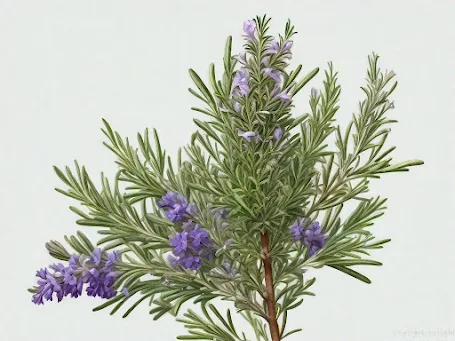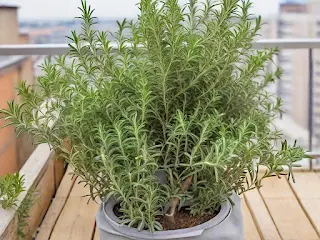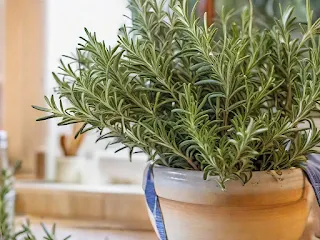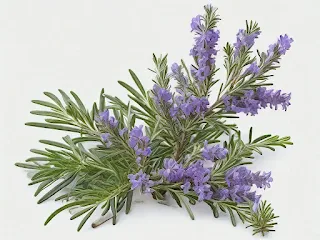Welcome to GreenBalconet.com, your ultimate source for all things related to balcony gardening. Today, we're about to embark on a fragrant journey through the world of rosemary, the herb of remembrance. From its rich history to its myriad of uses, we'll explore why this aromatic herb deserves a prominent place in your garden and kitchen.
What is Rosemary?
Rosemary (Rosmarinus officinalis) is an evergreen herb known for its fragrant, needle-like leaves. This Mediterranean native has been cherished for centuries, not only for its culinary contributions but also for its therapeutic properties.
Types of Rosemary
There are several varieties of rosemary, each with its unique flavor and growth habits. The most common types include:
- Tuscan Blue: Known for its strong flavor and tall, upright growth.
- Arp: Cold-hardy and perfect for cooler climates.
- Trailing Rosemary: Spills gracefully over containers, ideal for hanging baskets.
Health Benefits of Rosemary
Beyond its delightful aroma, rosemary offers a range of health benefits:
- Memory Enhancement: Ancient cultures believed that rosemary improved memory.
- Antioxidant Power: Packed with antioxidants, it helps combat oxidative stress.
- Digestive Aid: Rosemary supports digestion and alleviates indigestion.
- Anti-Inflammatory: It may reduce inflammation and help with pain relief.
Culinary Uses of Rosemary
Rosemary's bold flavor makes it a versatile addition to various dishes. Whether you're roasting meats, seasoning vegetables, or baking bread, this herb adds depth and aroma to your culinary creations.
How to Use Rosemary in Cooking
To fully harness its flavor, crush rosemary leaves or use whole sprigs. It pairs perfectly with lamb, chicken, and roasted potatoes. Don't forget to try it in olive oil for a delectable dipping sauce.
Rosemary Recipes
- Rosemary Roasted Chicken: A classic dish with a fragrant twist.
- Rosemary Focaccia: A mouthwatering Italian bread recipe.
- Lemon-Rosemary Shortbread: Sweet and savory, the perfect dessert.
Rosemary Cocktails
Rosemary's unique taste can also elevate your drink game. Try a Rosemary Gin Fizz or a Rosemary Infused Margarita for a herbal twist on your favorite beverages.
How to Grow Rosemary at Home
Now that you're enticed by rosemary's flavors and benefits, why not cultivate it in your own garden? Here's how:
- Choose the Right Location: Select a sunny spot with well-draining soil.
- Planting: Use rosemary seeds or cuttings, ensuring proper spacing.
- Watering: Rosemary prefers drier soil; avoid overwatering.
- Pruning: Trim regularly to encourage bushy growth.
- Harvesting: Pick leaves as needed, but don't strip the plant.
Rosemary in History and Mythology
Rosemary has woven its way into the tapestry of history and mythology, symbolizing different concepts in various cultures.
Rosemary's Symbolism in Ancient Greece and Rome
Ancient Greeks and Romans associated rosemary with memory and loyalty. It was often used in ceremonies and as a token of remembrance.
Rosemary in Christianity
In Christian traditions, rosemary was seen as a symbol of the Virgin Mary and was used in religious rituals and ceremonies.
Rosemary in Folk Medicine and Magic
Rosemary was believed to possess protective powers against evil spirits and illness. People would place it under pillows or burn it as incense to purify the air.
Rosemary in the Kitchen
How to Use Rosemary in Cooking
Incorporating rosemary into your daily meals is simple. Add a sprig to your roast, or finely chop it to season dishes like soups, stews, and sauces. The possibilities are endless.
Rosemary Recipes
To get you started, here are a few recipes to tantalize your taste buds:
- Lamb and Rosemary Skewers: A savory delight for your barbecue.
- Rosemary-Potato Galette: A stunning side dish for any occasion.
- Rosemary-Infused Olive Oil: A homemade gourmet gift.
Rosemary for Health and Beauty
Rosemary extends its benefits beyond the kitchen, offering wellness and beauty advantages.
Rosemary Essential Oil for Aromatherapy
The essential oil of rosemary is used in aromatherapy to boost mental clarity, relieve stress, and improve focus.
Rosemary Tea for Digestion and Headaches
Brew a cup of rosemary tea to aid digestion or alleviate headaches. Its soothing aroma is an added bonus.
Rosemary Hair Rinse for Dandruff and Hair Growth
Say goodbye to dandruff and hello to lustrous locks with a rosemary-infused hair rinse.
Rosemary Crafts and DIY Projects
Get creative with rosemary in various DIY projects and crafts:
- How to Make Rosemary Essential Oil: A step-by-step guide to crafting your own oil.
- How to Dry Rosemary: Preserve the herb's aroma and flavor for future use.
- Rosemary Wreath DIY Project: Decorate your home with a fragrant rosemary wreath.
- Rosemary Soap Recipe: Create luxurious homemade soap infused with rosemary.
Conclusion
In closing, rosemary proves itself as much more than a kitchen staple. It's a herb steeped in history, packed with health benefits, and a versatile ingredient for culinary delights. With its captivating aroma and rich symbolism, rosemary adds a touch of magic to your garden and daily life. So, don't hesitate to embrace this herb of remembrance, and let it flourish in your balcony garden and kitchen. The journey of discovery and creativity with rosemary has just begun!




